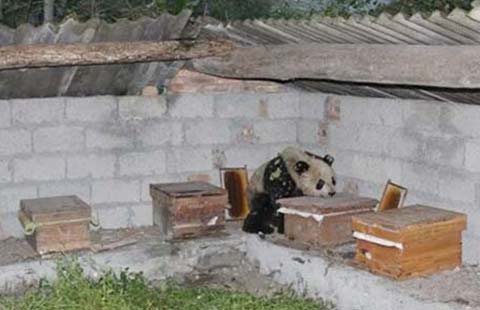China aims to land Chang'e-4 probe on far side of moon
Updated: 2015-09-08 20:14
(Xinhua)
|
||||||||
BEIJING - China is planning to be the first country to land a lunar probe on the far side of the moon, a Chinese lunar probe scientist said Tuesday.
The mission will be carried out by Chang'e-4, a backup probe for Chang'e-3, and is slated to be launched before 2020, said Zou Yongliao from the moon exploration department under the Chinese Academy of Sciences at a deep-space exploration forum Tuesday.
Zou said government organs have ordered experts to assess the plan over the past 12 plus months. "China will be the first to complete the task if it is successful."
The State Administration of Science, Technology and Industry for National Defense announced earlier this year that Chang'e-4 will be launched before 2020.
The far side of the moon, or "dark side of the moon" as it is more commonly called, is never visible to Earth because of gravitational forces. According to Zou, the far side of the moon has a clean electromagnetic environment, which provides an ideal field for low frequency radio study. "If we can can place a frequency spectrograph on the far side, we can fill a void."
Zou said Chang'e-4 is very similar to Chang'e-3 in structure but can handle more payload. It will be used to study the geological conditions of the dark side of the moon.
China plans to launch its Chang'e-5 lunar probe around 2017 to finish the last chapter in China's three-step (orbiting, landing and return) moon exploration program.
Li Chunlai, one of the main designers of the lunar probe ground application system, said Chang'e-5 will achieve several breakthroughs, including automatic sampling, ascending from the moon without a launch site and an unmanned docking 400,000 kilometers above the lunar surface.
Chang'e-5 will also have a new launch site and launch rockets, said Li.
Chang'e-3 landed on the moon in 2013, making China the third country after the Soviet Union and the United States to soft land a spacecraft on lunar soil.
- Hohhot overseas student pioneer park, core of 'Grassland Silicon Valley'
- Tight pollution controls affect major industries
- Tianjin announces pensions for martyred firefighters' families
- TCM tonic herb 'can kill HIV', study finds
- Intl Helicopter Exposition kicks off in Tianjin
- Premier Li commends nation's teachers
- Russian military experts present in Syria
- Norway PM says Norwegian citizen taken hostage in Syria
- Hungarian TV journalist fired for tripping up fleeing migrants
- Leaders from EU, Russia, Ukraine to meet in Paris in Oct
- Music is food for the soul for young Chinese violinist
- Australia's Tasmania, China agree to 'work together' on Antarctic expeditions

 Greedy panda eats ten boxes of honey
Greedy panda eats ten boxes of honey
 Soldiers in Sansha guard the islands
Soldiers in Sansha guard the islands
 Dunhuang heritage still alive in new age
Dunhuang heritage still alive in new age
 Bigger iPad announced at Apple 'monster' event
Bigger iPad announced at Apple 'monster' event
 World's largest mural on a giant rooftop
World's largest mural on a giant rooftop
 Starry Night: Van Gogh in Beijing
Starry Night: Van Gogh in Beijing
 Dog rescue leads to self-stabbing
Dog rescue leads to self-stabbing
 Serena vs Venus: Sibling rivalry as usual
Serena vs Venus: Sibling rivalry as usual
Most Viewed
Editor's Picks

|

|

|

|

|

|
Today's Top News
Inside look at Apple's newly-launched products
Peking Opera performance thrills NY
Chinese man, daughter arrested in alleged marriage scam
China's CPI up 2% in August
Hillary Clinton's lead eroded by Joe Biden's surge in poll
Apple TV comes with 'apps'; big iPad aimed at business
China aims to be first to land on far side of moon
Renowned scroll painting unrolled at the Palace Museum
US Weekly

|

|







